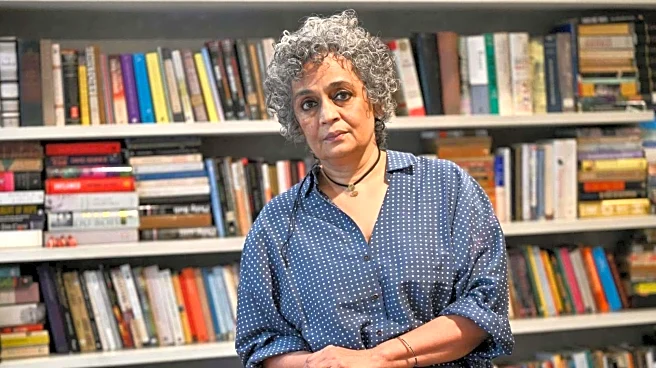By Dr. Umesh Kothari
In today’s interconnected and globalised economy, the modern manager must be as comfortable navigating cultural nuances as they are analysing balance sheets. This is where a Global
MBA stands apart, it trains professionals to think and lead across borders. However, selecting the right program fit demands careful consideration. Beyond brand value and location, one must also consider return on investment, global career potential, and the programme’s actual capacity to develop leadership agility in complex international contexts.
Global Exposure That Goes Beyond The Brochure
The essence of a Global MBA lies in exposure, not just to international peers, but to the realities of the world beyond. Some programs merely enroll students from multiple countries, while others immerse candidates in cross-campus learning, global consulting projects, and live corporate challenges across continents. Professionals seeking to expand their career beyond domestic markets must ask: Will this program place me in different business environments? Look for universities that offer rotations across regions. For example, studying in Asia for one term and Europe or North America in another. True global exposure is experiential, not symbolic.
Curriculum Relevance And Industry Integration
A strong Global MBA blends foundational management disciplines with subjects that reflect the realities of modern business — global strategy, technology management, and sustainability. The best programs now weave in analytics, digital transformation, and ESG leadership, ensuring graduates can make decisions rooted in data and ethics. For candidates targeting multinational roles, curriculum relevance is key. A program with strong ties to global firms, live projects, or international internships will translate theory into employable skill sets. The closer the program works with industry, the better its graduates perform in global placement markets.
Faculty Excellence And Global Thought Leadership
Experienced faculty are the intellectual backbone of any MBA. In a global program, professors should not only teach but actively consult, research, and influence business policy across countries. Before applying, review the faculty’s global exposure, do they bring case studies from relevant and global markets to help diversify perspective? Do they bring in strong industry and academic experience? For students who want to understand how strategy differs between developed and emerging economies, globally active faculty make all the difference.
Diversity And Networking Capital
Diversity is not a number; it is an advantage. The richer the mix of nationalities, industries, and functions in your cohort, the more you learn from daily interaction. Classroom debates in a truly global MBA mirror the negotiations, collaborations, and cultural challenges you will face in real boardrooms.
Equally, global networking can be a lifelong asset. Evaluate the school’s alumni footprint — are its graduates leading companies in Singapore, Dubai, or London? An institution’s alumni network often serves as an entry point to global job markets and entrepreneurial opportunities.
Return On Investment And Financial Planning
Tuition and living costs for global programs range widely, and not all institutions guarantee commensurate outcomes. A prudent evaluation measures ROI in terms of long-term earning potential, global mobility, and the career acceleration that follows. A well-ranked college with strong placement support can yield a payback period of two to four years, but more importantly, it opens doors to international roles that compound returns over time.
Investigate scholarships, assistantships, and education loans for international study. Many top universities have financial aid for international students. Balancing financial responsibility with opportunity is essential to ensure your investment generates both professional and personal dividends.
Career Outcomes And Employer Reach
A Global MBA should not only educate but also connect. Review placement reports carefully not just the average salary figures, but also where graduates work and in what roles. A program’s strength lies in its employer partnerships across consulting, finance, technology, and manufacturing sectors.
For those seeking to build careers abroad or with global corporations operating in India, this visibility is critical. Schools with dedicated international career offices and global internship tracks tend to deliver better outcomes for foreign graduates entering competitive job markets.
Values, Ethos And Institutional Mindset
Global leadership today requires more than technical excellence; it demands perspective. Choose a school whose philosophy aligns with how you wish to lead. Institutions that emphasise sustainable growth, ethical business, and social impact nurture leaders who contribute to the global good while excelling in corporate performance.
The most successful Global MBA graduates are those who learn to integrate profit with purpose—a mindset increasingly valued by global employers.
ALSO READ: CBSE Opens LOC Correction Window 2025, Update Name, DOB & Subjects By Oct 27
Accreditation And Global Recognition
Accreditation guarantees global quality benchmarks. It ensures that the program’s curriculum, faculty standards, and governance meet international expectations. For students planning to work abroad or with multinational firms, an accredited Global MBA offers the reassurance of recognition, which makes the degree hold major weight in global markets.
Final Perspective
Choosing an MBA in Global Management is both a financial and intellectual investment. For professionals, it represents a bridge between domestic expertise and global leadership. The right program will not only offer academic rigor and international exposure but also deliver tangible returns through career advancement, cross-border opportunities, and an expanded worldview.
In a business world shaped by digital disruption and geopolitical shifts, success belongs to those who can connect global insight with local action. A Global MBA is not merely about studying the world but rather about learning how to lead it.
(The Author is the Assistant Dean, GMBA, MGB and GCGM, Dubai at SP Jain Global School of Management. Views expressed in the above piece are personal and solely those of the author. They do not necessarily reflect News18’s views.)





/images/ppid_59c68470-image-177104254494215325.webp)

/images/ppid_a911dc6a-image-177104210287325129.webp)

/images/ppid_a911dc6a-image-177104202793221357.webp)
/images/ppid_a911dc6a-image-177104206710214315.webp)
/images/ppid_a911dc6a-image-177104202907093694.webp)
/images/ppid_59c68470-image-177104014803952296.webp)
/images/ppid_59c68470-image-177104006389961167.webp)
/images/ppid_a911dc6a-image-177103853218557950.webp)